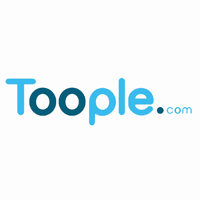Humana Inc. (NYSE: HUM) stands as a formidable player in the healthcare plans industry, a sector that continues to experience robust demand and growth prospects. With a market capitalization of $34.44 billion, Humana is a significant entity in the healthcare landscape, providing a wide array of medical and specialty insurance products. Investors interested in healthcare stocks may find Humana’s current positioning and future prospects particularly appealing.
The company’s stock is currently priced at $286.39, having experienced a slight price change of $5.05, equating to a marginal increase of just 0.02%. Over the past year, Humana’s stock has navigated a 52-week range between $220.41 and $371.40. This volatility, typical of the healthcare sector, presents both challenges and opportunities for investors looking to capitalize on price fluctuations.
Humana’s valuation metrics present a complex picture. Notably, the forward P/E ratio stands at 20.97, suggesting that investors are willing to pay a premium for future earnings. However, several traditional valuation metrics such as the trailing P/E, PEG ratio, and price/book ratios are unavailable, which can make direct comparisons with peers somewhat challenging. This valuation landscape underscores the importance of looking beyond conventional metrics to evaluate Humana’s potential.
The company’s performance metrics show a revenue growth of 9.60%, indicative of its strong market positioning and ability to capture an increasing share of the healthcare market. With an earnings per share (EPS) of 13.06 and a return on equity of 9.03%, Humana demonstrates solid profitability, although the negative free cash flow of over $1 billion warrants attention and could indicate future liquidity considerations.
Dividends are a crucial aspect for income-focused investors, and Humana provides a dividend yield of 1.24% with a payout ratio of 27.13%. This suggests a balanced approach to returning capital to shareholders while retaining enough earnings to reinvest in business growth.
Analyst ratings reflect a cautious optimism towards Humana, with 8 buy ratings and 16 hold ratings, and no sell ratings. The target price range spans from $250.00 to $353.00, with an average target of $290.05, indicating a potential upside of 1.28%. Such modest upside suggests that while Humana’s growth prospects are recognized, the stock may be fairly valued at its current price.
Technical indicators provide additional insights into Humana’s stock momentum. The 50-day moving average of $242.15 and the 200-day moving average of $260.38 indicate the stock is trading above its short-term and long-term averages, which could be seen as a bullish signal. However, with a Relative Strength Index (RSI) of 42.26, the stock is not in overbought territory, suggesting there may still be room for upward movement.
Humana’s business model is diversified, operating in two primary segments: Insurance and CenterWell. The company not only provides medical care and supplemental benefit plans but also engages in pharmacy benefit management and primary care centers focused on senior citizens. This diversification, coupled with strategic partnerships such as contracts with the Centers for Medicare and Medicaid Services, positions Humana to leverage demographic trends and government healthcare initiatives.
Founded in 1961 and headquartered in Louisville, Kentucky, Humana has evolved significantly from its origins as Extendicare Inc. The company’s ability to adapt and expand into various facets of healthcare delivery and management continues to make it a compelling choice for investors seeking stable growth in the healthcare sector.
For investors considering an investment in Humana, the company’s strong revenue growth, balanced dividend policy, and strategic market position offer a solid foundation. However, close attention should be paid to its cash flow dynamics and market valuation to ensure alignment with personal investment goals and risk tolerance.





































